
A homeless family shares a meager meal on the streets of the city. Despite improvements in the country’s economic indicators, more than 26 mln Filipinos remain poor, with about 12 mln living in extreme poverty.
Manila, Philippines, MINA — Almost 90 percent of people living in extreme poverty in Southeast Asia are in Indonesia and the Philippines, Philsta reported, citing a report.
This was one of the findings of the report entitled “Association of Southeast Asian Nations (ASEAN)-China-United Nations Development Programme (UNDP) Report on Financing the Sustainable Development Goals (SDGs) in ASEAN: Strengthening Integrated National Financing Frameworks to Deliver the 2030 Agenda.”
It focused on streamlining development financing and strengthening domestic resource mobilization in 10 ASEAN countries in order to finance national development. It also highlighted China’s financing in ASEAN.
In his remarks during the report launch, Vongthep Arthakaivalvatee, deputy secretary-general for ASEAN Socio-Cultural Community, said “ASEAN’s greatest asset is its people and proper financing will enable (them) to reach their potential.”
Also Read: Saudi Arabia Wins Bid to Host World Expo 2030
“This report provides us with an understanding on the scale and mix of financing in the ASEAN region and the opportunities that can be explored to maximize financing for SDGs,” he said.
It noted that while extreme poverty has fallen across the region from 17 percent in 2005 to seven percent in 2013, many of the working poor remain vulnerable to falling back into poverty.
Universal health coverage
An estimated 36 million people in the region still live below the international poverty line, with almost 90 percent of them living in Indonesia and the Philippines, the report said.
Also Read: 148 Products from Indonesia Promoted at Sarawat Superstore Jeddah
The report underscored the importance for ASEAN, as a region, and member-states in their national capacity, to identify how to finance poverty eradication programs in order to realize the SDGs and ASEAN Vision 2025.
While ASEAN has made progress in addressing infectious diseases, challenges prevail as it now faces the rising rate of non-communicable diseases, the report said.
Providing universal health coverage (UHC) is key in improving the lives of the people in ASEAN, the report added.
It said Brunei Darussalam, Malaysia and Thailand are able to provide UHC through a tax-funded system while Singapore provides UHC through a contribution-based system that includes a social assistance component.
Also Read: Packaging Industry Supports Halal Ecosystem
Indonesia is committed to providing UHC and has set a target for achieving UHC by 2019.
Indonesia is the most populous country in ASEAN with over 257 million people, followed by the Philippines with 100 million, comprising more than half of the 639 million population of the region.
Among ASEAN member-states, Indonesia has the biggest economy with $819 billion, followed by Thailand with $395 billion and Malaysia with $296 billion. (T/RS5/RS1)
Mi’raj Islamic News Agency (MINA)
Also Read: Indonesia-Japan Agree on Energy Transition Cooperation





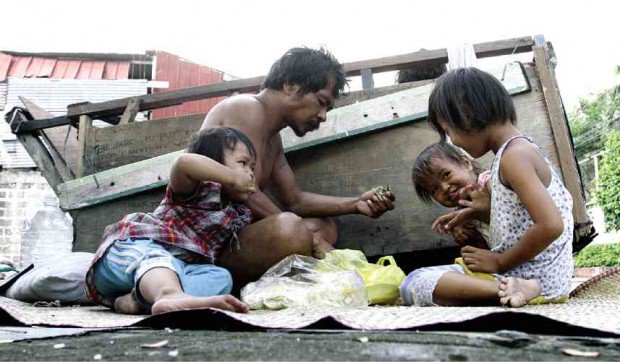




![Israeli tanks and APC’s gather by the Israeli – Lebanese border. Amid Israel’s escalating campaign against Hezbollah in Lebanon on September 30, 2024. [Erik Marmor/Getty Images]](https://en.minanews.net/wp-content/uploads/2024/10/IMG_20241001_203226-300x197.jpg)




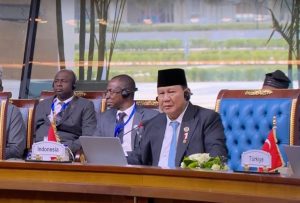
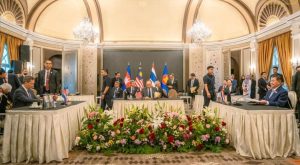
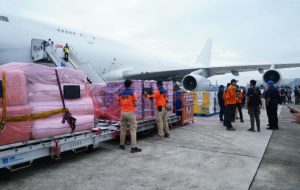
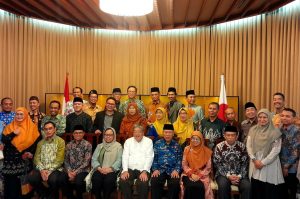
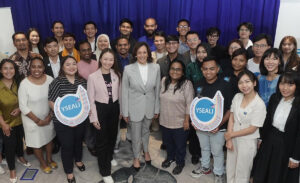
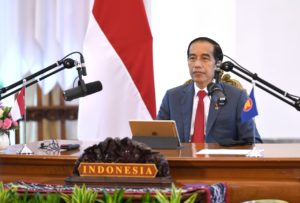





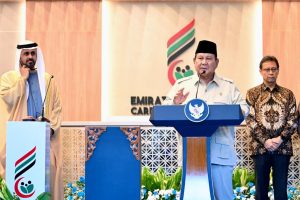





 Mina Indonesia
Mina Indonesia Mina Arabic
Mina Arabic